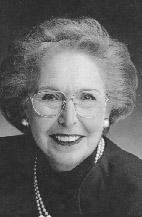Mr. Speaker, pursuant to Standing Order 34(1), I have the honour to present to the House, in both official languages, the report of the delegation of the Canadian interparliamentary union group which participated at the 19th working committee and general assembly of the ASEAN Interparliamentary Organization which was held in Kuala Lumpur, Malaysia from August 24 to August 28, 1998.
I have the distinct privilege to present, in both official languages, the report of the delegation of the Canadian interparliamentary union group which travelled to Bangkok, Vientiane, Laos and Cambodia from August 28 to September 3 in support of Canadian action on anti-personnel land mines.
I take this opportunity on behalf of all parliamentarians to congratulate the Minister of Foreign Affairs who will receive later this week in Lisbon the north-south prize of the Council of Europe in recognition of his strong commitment to this struggle for democracy, global interdependence, solidarity and human rights. It is a well-deserved award. I recommend this report for reading to all members.
Pursuant to Standing Order 34(1), I have the honour to present to the House, in both official languages, the report of the 100th interparliamentary conference which was held in Moscow, Russia from September 7 to September 13. I commend all delegates who worked so hard to move on international issues which are so important to all of us.

